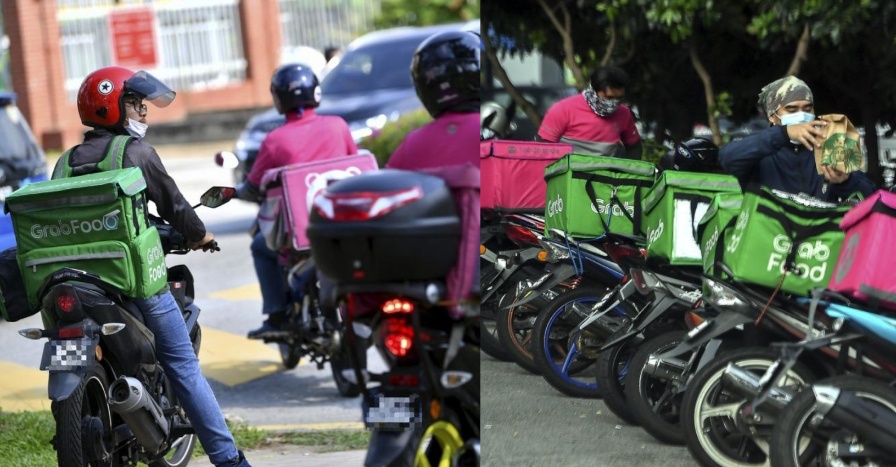Recent data shows that 77 per cent of the total employed persons in Malaysia fall under the category of employees. As employees in the formal sector, they are providentially protected by the Social Security Organisation (PERKESO) and the Employees Provident Fund (EPF).
PERKESO is designed to protect employees in the formal sector from vulnerabilities such as injuries at the workplace, critical illnesses or loss of employment while EPF safeguards its members with financial security following retirement.
Informality and growth
On the other hand, 16.8 per cent of the total employed persons in Malaysia are made up of self-employed or own-account workers. Representing the second biggest segment of employment in Malaysia, these workers fall under the category of employees in the informal sector.
Unlike their counterparts in the formal sector, employees in the informal sector are not protected by either PERKESO or EPF. This places them at a higher risk of exposure to vulnerabilities.
The scope of jobs in the informal sector is vast. The informal sector has gained prominence not merely due to the lack of opportunities in the formal sector, but it is also fuelled by the current labour market development. Historically, the informal sector was a significant contributor to the labour market in the country before the rapid growth of the export-oriented industries in the 1980s and 1990s, tracing back to the early days of pre-independence where a large majority of the population worked as paddy planters and fishermen and in other various types of informal jobs.
With the rapid advancement of the gig economy, and further accentuated by the impact of the COVID-19 pandemic, a large number of people have become self-employed, either by choice or by force. The gig economy has subsequently become an alternative option for many to earn income and sustain their livelihood.
Flexibility versus fragility
However, the prominent rise of the informal sector has raised some alarming concerns that need to be addressed by the government. Despite becoming an important source of income for many, workers in the informal sector are not protected by any form of safety net. They are not covered by PERKESO and neither do they have to make the obligatory contribution to EPF for retirement.
The informal sector is essentially a non-contractual entity with no obligations other than payment for the services rendered. Such a business entity can either be registered or not registered with any official authorities.
Yet, the nature of their work might expose them to various risks such as death or injury at the workplace. An example of such a job is that of a fisherman. Fishermen have to venture into the vast seas for their livelihood. The sea is their only source of revenue but fraught with perils such as stormy weather, assaults from sea pirates, or death from drowning. A popular occupation that emerged from the COVID-19 pandemic is the food delivery service. The food delivery riders face the risk of injury or death due to road accidents while performing their duties.
Voluntary Measures: are they sufficient?
Undeniably, the government has taken some proactive measures to protect the welfare of workers in the informal sector. The Self-Employment Social Security Scheme under PERKESO is currently enforced under the provisions of the Self-Employment Social Security Act 2017.
In January 2020, the scheme extended its coverage to 19 other sectors listed under the informal sector. The scheme, as announced in the Budget 2022 speech, will be expanded to cover nine new categories of self-employment. The expanded coverage is expected to benefit more than 810,000 self-employed workers in the country.
Similarly, the EPF voluntary scheme i-Saraan has been extended to include the self-employed. Those who participate in this programme are entitled to receive annual EPF dividends similar to regular contributors, death benefits of RM2,500 and 15 per cent government contribution (a maximum of RM250 per year on top of their own contributions).
Nevertheless, the increasing prominence of the informal sector combined with the increasing life expectancy of the country’s population affirms that social protection for workers in the informal sector should be given serious consideration. This is to ensure that the workers are protected against injury, unemployment and inadequate or no income during old age.
The most immediate solution is to ensure that the workers have adequate protection against any injury or illness in the course of their employment that can lead to invalidity for the rest of their lives. The safety net should safeguard workers against depletion of income, job security and absence of income during old age.
Enhancing national resilience
A scheme that is eligible to all working adults is most welcomed to protect self-employed workers against various risks. However, the contribution must be carefully designed to ensure that it does not burden the workers while, concurrently, it is sufficient to secure their wellbeing in the face of fragilities.
Briefings and learning sessions need to be further intensified to educate people on the importance of protection against risks in their lives, while at the same time providing incentives, ease of registration and better payment method.
In the long run, the social safety net must be made mandatory and automatic. Getting every Malaysian adult covered would mean having a steady income, even when faced with illness, work-related injury, invalidity, unemployment, and old age.
Certainly, it is a good strategy to advocate for our national development to ensure shared prosperity.
Sources: BERNAMA



